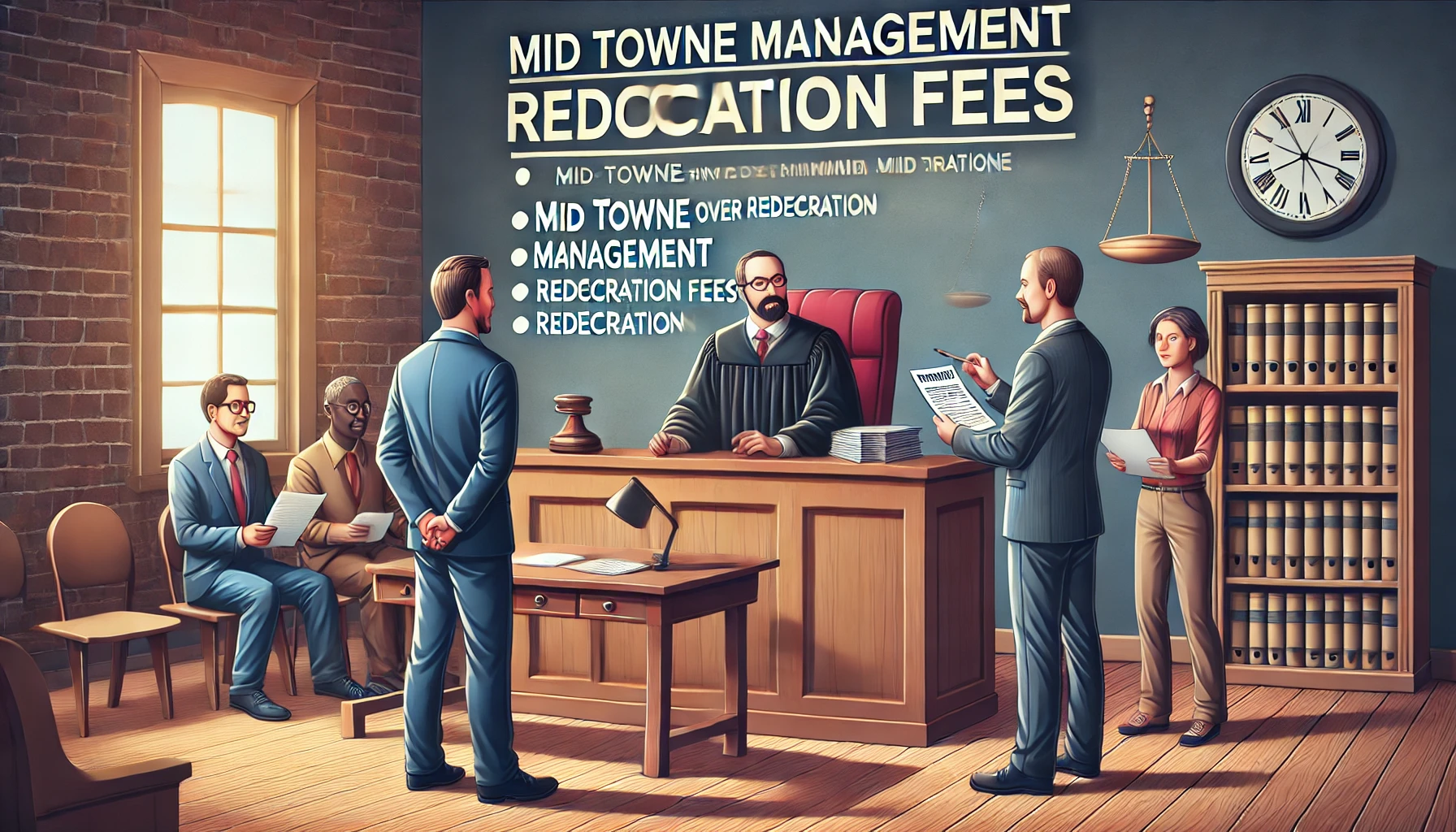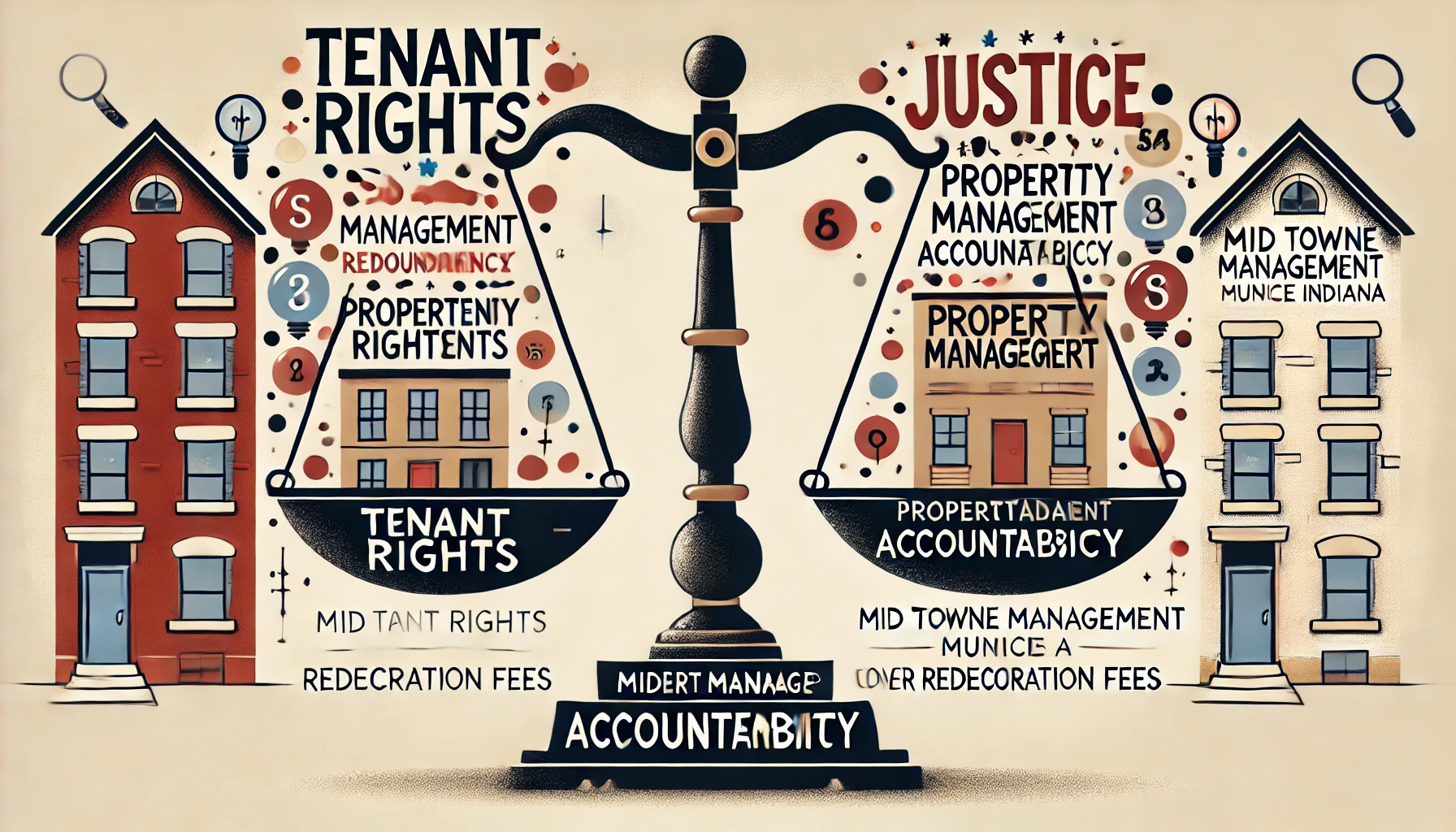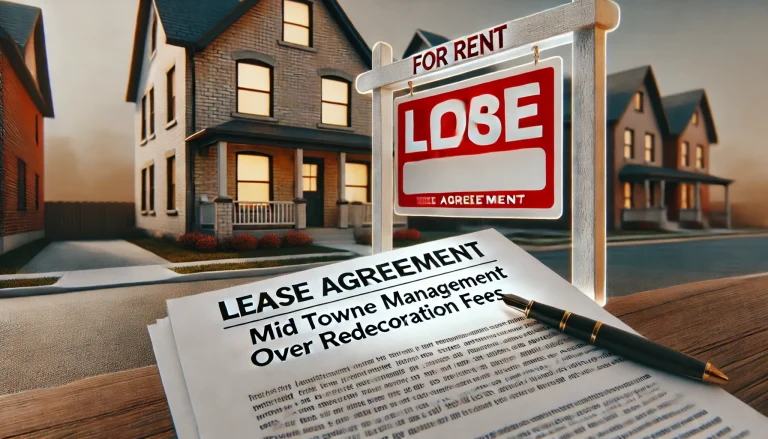Mid Towne Management, a well-known property management company, is at the center of the Mid Towne Management Muncie Indiana Lawsuit Over Redecorating Fees. This legal battle raises serious concerns about transparency and fairness in rental agreements, with tenants alleging they were unfairly burdened by excessive and undisclosed charges when they moved out. The case highlights important issues about tenant rights and ethical property management practices.
Understanding Redecoration Fees
Redecoration fees are charges that landlords or property managers impose to cover the costs of preparing a rental unit for the next tenant. These costs can include repainting walls, cleaning carpets, repairing minor damage, or other maintenance work. While such fees are common, they are typically only charged when the tenant leaves the property in a condition beyond normal wear and tear.
Importantly, these fees must be reasonable, clearly outlined in the lease agreement, and supported by evidence of the expenses. In the case of Mid Towne Management, tenants claim the fees were neither reasonable nor properly explained in their rental contracts. Many felt blindsided by unexpected and steep bills after moving out, which left some of them struggling financially.
Key Allegations in the Lawsuit
The tenants involved in the lawsuit against Mid Towne Management have raised several serious complaints:
- Unreasonable Charges: Tenants allege they were charged excessive amounts, often far beyond what they believe was necessary to repair or clean the property.
- Lack of Transparency: The lawsuit claims that the lease agreements did not provide clear information about what the redecoration fees covered or how they would be calculated.
- Failure to Provide Proof: In many cases, tenants were not given itemized invoices or evidence to justify the charges. Some even reported being charged for damages they did not cause.
- Application of Fees Without Just Cause: Tenants allege that charges were imposed even when the property was returned in good condition, showing no significant damage or mess.
These allegations have brought Mid Towne Management’s practices under scrutiny, with tenants seeking accountability and fair treatment.
Legal and Consumer Protection Concerns
This lawsuit brings attention to important legal protections for tenants in Indiana. State laws require landlords and property managers to:
- Clearly disclose all fees and conditions in lease agreements.
- Only charge tenants for damage or excessive wear and tear that exceeds what is considered “normal.”
- Provide proof of expenses when charging fees, including receipts or itemized bills.
The allegations against Mid Towne Management suggest potential violations of these standards. Cases like this highlight how some property managers may exploit unclear lease terms to impose unfair charges on tenants. Such practices not only harm tenants but also erode trust in the rental housing market.
Mid Towne Management’s Response
As of now, Mid Towne Management has denied any wrongdoing. The company has argued that redecoration fees are a standard part of maintaining rental properties and ensuring they are ready for new tenants. However, critics argue that even standard fees must be reasonable, transparent, and justified with clear documentation.
The lawsuit and subsequent public backlash have put pressure on the company to reassess its policies and improve transparency. Whether Mid Towne Management will implement meaningful changes remains uncertain.
Broader Implications of the Case
This case is not just about one company or one group of tenants—it has broader implications for the rental housing industry as a whole.
Impact on Tenants:
- The lawsuit has highlighted the vulnerability of tenants who may not fully understand their rights or the terms of their lease agreements.
- It serves as a reminder to tenants to read their lease agreements carefully, ask questions, and document everything during their tenancy.
Lessons for Property Managers:
- The case underscores the importance of clear and ethical business practices in property management.
- Property managers are reminded that tenants are more likely to trust and respect companies that prioritize transparency and fairness.
Comparison to Similar Cases:
- This case is not unique. Similar lawsuits have been filed against property management companies in Indiana and beyond. For example, Middletown Property Management, another company in Muncie, faced legal action for charging “redecoration fees” in place of a security deposit, which violated state law. Such cases reveal patterns of questionable practices in the rental industry.
Practical Advice for Tenants
This lawsuit offers important lessons for tenants about how to protect themselves from similar issues:
- Review Lease Agreements Thoroughly: Before signing a lease, tenants should ensure all fees, including redecoration charges, are clearly defined. If anything is unclear, ask for clarification.
- Document the Property’s Condition: Upon moving in, take detailed photos or videos of the property. Do the same when moving out to show its condition and avoid disputes.
- Request Evidence of Charges: If charged fees upon move-out, tenants should request itemized bills, receipts, or photos that justify the charges.
- Know Your Rights: Familiarize yourself with local tenant protection laws. In Indiana, landlords must follow specific rules about how and when they can impose fees.
- Seek Legal Help if Necessary: If tenants believe they’ve been unfairly charged, they can contact local tenant advocacy groups, and legal aid organizations, or file a complaint with the Indiana Attorney General’s office.
Legal Resources and Support
Tenants facing similar issues can take advantage of several resources:
- Tenant Advocacy Groups: Organizations that provide legal advice and support for renters.
- Indiana Attorney General’s Office: Handles complaints about unfair rental practices.
- Small Claims Court: A cost-effective way to challenge unjust fees without hiring an attorney.
Conclusion
The Mid Towne Management Muncie Indiana Lawsuit Over Redecorating Fees highlights the significant challenges tenants face when unclear or excessive charges are imposed. This case emphasizes the critical need for transparency, fairness, and accountability in the rental housing industry.
For tenants, it serves as a vital reminder to stay informed about their rights, thoroughly review lease agreements, document the condition of their rental units, and challenge any unjust charges. For property management companies, the case is a clear call to adopt ethical and transparent practices that prioritize fairness and build trust with tenants.
FAQs about Mid Towne Management Muncie Indiana Lawsuit Over Redecorating Fees
What is the lawsuit against Midtown Management about?
The lawsuit involves allegations that Mid Towne Management charged tenants excessive and unjustified redecoration fees upon move-out. Tenants claim these charges were not transparently outlined in their lease agreements and, in some cases, were applied without evidence of property damage or the actual need for repairs.
What are redecoration fees, and are they legal?
Redecoration fees cover costs for restoring a rental unit after a tenant vacates, such as repainting, cleaning, or repairing damage. These fees are legal if:
- They are clearly stated in the lease agreement.
- They are reasonable and only applied for damage exceeding normal wear and tear.
- Landlords provide proof of the expenses, such as itemized bills or receipts.
What do tenants allege about Mid Towne Management’s practices?
Tenants claim the company:
- Imposed excessive charges without clear justification.
- Failed to provide evidence, such as receipts or photos, to support the fees.
- Did not properly disclose these fees in lease agreements, leaving tenants unprepared for the financial burden.
How can tenants protect themselves from unfair redecoration fees?
Tenants can take the following steps:
- Review the Lease Carefully: Ensure all fees are clearly explained before signing.
- Document Property Condition: Take photos or videos at move-in and move-out to prove the condition of the unit.
- Request Proof of Fees: If charged, ask for itemized invoices or receipts detailing the expenses.
- Seek Legal Help: If fees seem unreasonable, consult a tenant rights organization or a legal aid service.
What resources are available for tenants facing similar issues?
Tenants can:
- File a complaint with the Indiana Attorney General’s office.
- Seek assistance from local tenant advocacy groups or legal aid organizations.
- Use small claims court to challenge unfair charges if negotiations with the landlord fail.




